What does Chu-Chut mean?
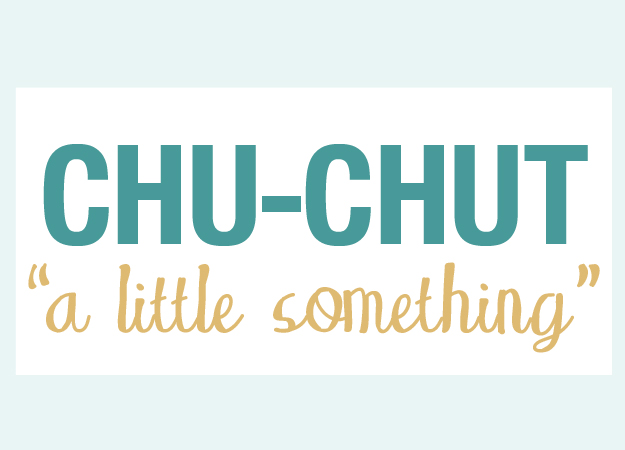
By Torri Sepulvado, Special Sections Editor What it is??? A Chu-Chut is a thing. What thing you might wonder? It’s anything you want it to be. A Chu-Chut is the thing that you can’t remember the name of in the middle of a conversation. It is a southern Louisiana saying that, as a transplant, I have come to love. It’s one of my favorite new words and I think it needs to be spread to the rest of the country. It keeps the conversation flowing, and somehow everyone knows what you’re talking about even though you never said. Let me give you an example: Girl: “Today I taught my nephew how to tie his shoes.” Friend: “How old is he?” Girl: “He’s 6, but you know that chu-chut on the end of the laces?” Friend: “Oh yea! The little plastic thing.” Girl: “Yes! That thing.” When the “chu-chut” came into use I don’t know, but whoever came up with it I want to shake their hand. I think it is such a clever word.
Creole and Cajun . . . What’s the Difference?
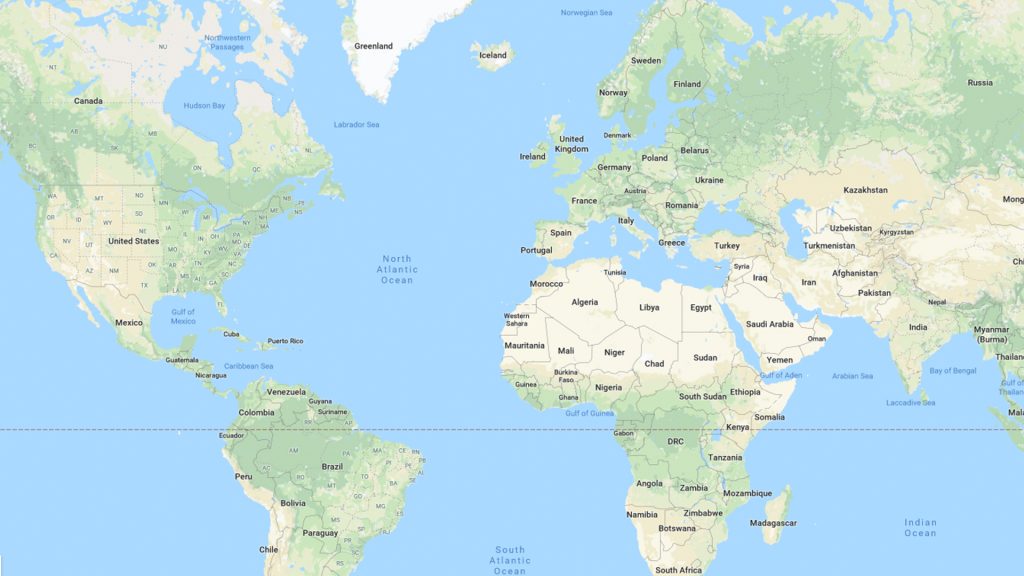
By Torri Sepulvado, Special Sections Editor Creole and Cajun are sometime used interchangeably, but in reality the words refer to two separate groups of people. Creoles are descendants from the upper-class French and Spanish colonists that came from Europe. The word Creole eventually included slaves born in the colonies and free people of color. Cajuns are descendants of the Acadians, French natives who settled in Acadia, or Nova Scotia. They were forced to relocate to South Louisiana after their home was taken by the British. There is a distinct difference between the two, especially because during the 18th century these two groups of people were living extremely different lives. The Creoles were mostly inside New Orleans dealing with the growing population and the racism that came from having darker skin. The Cajuns were in the outlying bayous living, for the most part, off of the land. One major difference was the development of the two groups’ food. Cajuns were hunters, and the bayou area provided no shortage of game to hunt. However, the spices and variety of food was limited for the Cajuns so they learned to heavily spice every part of the animal they killed to make the most of it. Creole cuisine was developed in the city by kitchen slaves that had a variety of spices and cooking methods available to create more complex dishes. I’ve heard the difference between a Creole gumbo and a Cajun gumbo is tomatoes. A Creole gumbo is tomato based. Each group grew into the distinct cultures you are able to see and experience in the New Orleans area.
The Rougarou
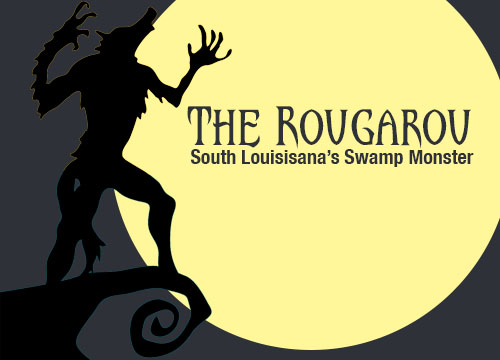
Torri Sepulvado, Special Sections Editor The Swamp Monster The Rougarou is South Louisiana’s own swamp monster. It is a common folktale parents use to keep children from crawling out of their beds at night and causing mischief. According to Brian Head, a Cajun from Berwick, the Rougarou “looks like a half wolf man with big teeth ready to tear into a man.” The Rougarou is a legend that evolved from the French legend of loup-garou. “Loup” is the French word for wolf, and “garou” meaning man. The Rougarou is the story of the werewolf. Some even claim that a man becomes the Rougarou if he breaks from Catholic religious tradition. Larry Faulk, a Catholic Cajun from Morgan City, says his mom used to tell him that if he broke the rules for Lent he would turn into the Rougarou. And at the top of the story is Chase Boudreaux from Lockport talking about the Rougarou legend. Spooky Howling Werewolf poster halloween promo | Free vector by Vector Open Stock
Punishment Now and Then
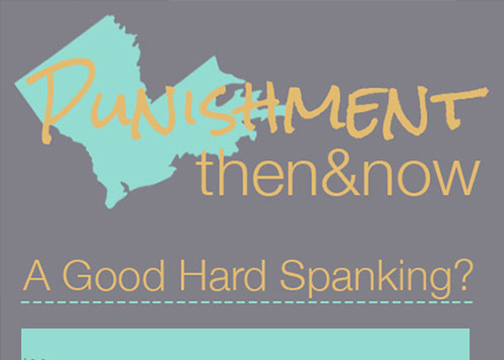
by Harmony Hamilton, Managing Editor Hiram Torres, born in 1930 with a twin brother and the father of five, gives his thoughts on spanking and the way kids are being brought up in this generation. “I got many spankings coming up, but it didn’t hurt me…not enough to where I got bruised or abused, but I felt it. That is one thing that I notice so much about today’s parents, they don’t spank their kids. “I also think that the parents aren’t devoting enough time participating in their kids’ lives. “When my kids were growing up and there was a function at school, we went. Because I feel as though if you don’t show your child that you are interested in what is going on in his school, then he’s going to say, ‘Hey my parents don’t care.’ “It may be because both parents are working. But at least one should find the time. Going to open houses, school activities, or field trips… I don’t think the parents devote enough time to that.“
Southern Sayings
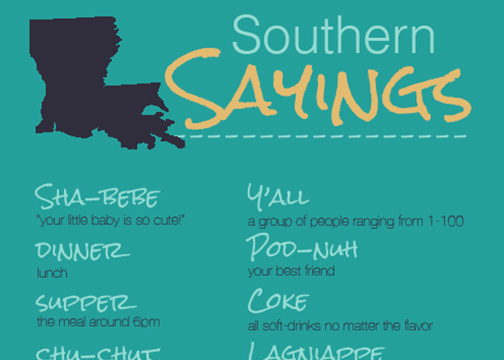
by Torri Sepulvado, Special Sections Editor “Aldnfgtgskf jskdyybfk kfuhbdl!” Gibberish is what I sometimes heard when I first moved to South Louisiana from North Louisiana — Shreveport to be exact. The accents and words are so varied in that for a newcomer it’s almost impossible to understand. Slowly but surely I learned that dinner meant lunch and cher-bebe, pronounced sha-bebe, meant “awe so cute.” There was a steep learning curve, but as I became more comfortable I found myself falling into the new slang I learned.
